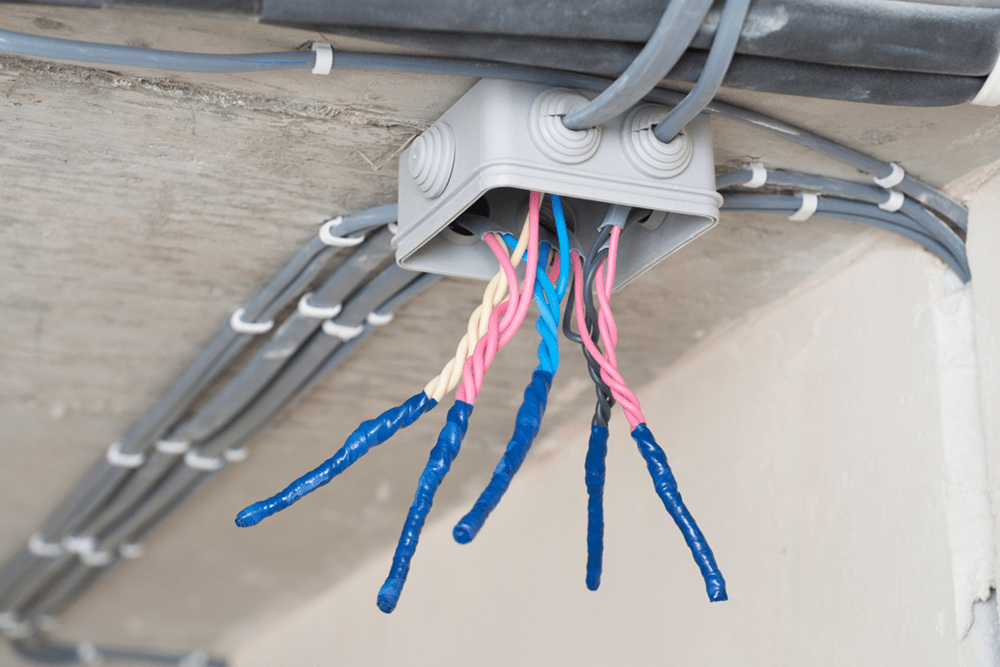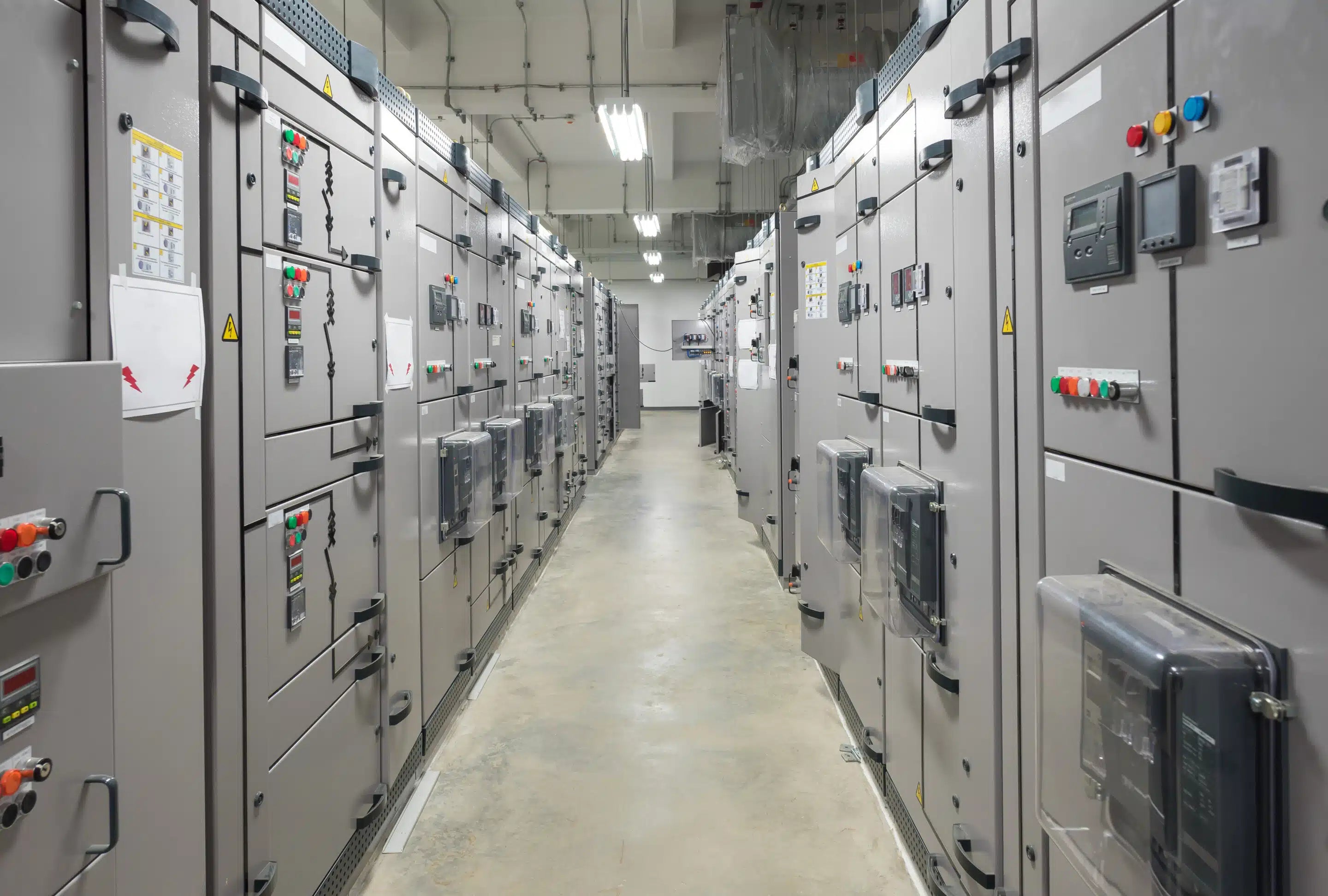When it comes to electrical projects, one of the key decisions you will face is choosing between metal vs. plastic electrical boxes. Each has its advantages and drawbacks depending on the type of wiring and installation environment. Understanding when to use metal or plastic can ensure that your project is safe, efficient, and compliant with building codes.
At Sonic Electric, we offer a variety of electrical outlet boxes and other electrical solutions to meet your unique requirements.
The Basics: Metal Electrical Boxes
Metal electrical boxes have been the industry standard for years due to their strength, durability, and fire resistance. These boxes are made from steel or aluminum and are often recommended for commercial projects, though they are also suitable for residential use under certain circumstances.
One of the key benefits of metal boxes is that they provide grounding through their metal structure. When using metallic-sheathed wiring, which has built-in grounding properties, the metal box completes the circuit, enhancing the safety of the installation. This makes them ideal for areas where grounding is critical, such as kitchens or basements where appliances draw significant electrical loads.
Moreover, metal boxes can handle heavier electrical loads. If you are installing a ceiling fan or a large light fixture, for instance, a metal box may be the best choice due to its ability to support the weight and resist damage. Similarly, in exposed applications, such as unfinished basements, garages, or outdoor areas, metal boxes offer the necessary strength to withstand the elements and mechanical stress.
However, metal boxes can be more difficult to install. Their sharp edges require careful handling, often making them less suitable for DIYers. Additionally, they tend to be more expensive than plastic alternatives, which may be a consideration for larger projects.
The Case for Plastic Electrical Boxes
Plastic electrical boxes, typically made from PVC, have become increasingly popular, especially for residential wiring. These boxes are lightweight, affordable, and much easier to install than metal options. For many homeowners and DIYers, plastic boxes provide a simpler, safer solution for smaller electrical projects.
One significant advantage of plastic boxes is that they do not require grounding since plastic is non-conductive. This makes them ideal for use with non-metallic sheathed wiring (often referred to as Romex). In typical residential projects where plastic-sheathed wiring is used, plastic boxes are enough and often preferred for their convenience.
Additionally, plastic boxes are less prone to corrosion and rust, making them ideal for areas where moisture may be a concern. They are also equipped with built-in clamps, simplifying the process of securing electrical wires during installation. Malibu boxes, for example, are a popular type of plastic box used in outdoor landscape lighting projects because of their ease of installation and resistance to moisture.
That said, plastic boxes are not as strong as metal boxes. They can warp or crack under stress, particularly if overloaded with heavy fixtures or when used in high-traffic areas where they may be exposed to impact. They are also not suitable for use with metallic-sheathed wiring unless extra precautions are taken to ensure proper grounding.
Choosing the Right Box for Your Project
The decision between metal and plastic electrical boxes depends largely on the specific requirements of your project. If you are working on a commercial installation, or if the electrical setup involves metallic-sheathed cables, grounding considerations may push you toward using metal boxes. For example, if you are wiring an unfinished basement with exposed conduit, a metal box is essential for maintaining the safety and integrity of the system.
On the other hand, if you are working on a residential project with non-metallic sheathed wiring, a plastic box will likely be more appropriate. Their lightweight design and ease of use make them perfect for installing light switches, outlets, or small light fixtures.
Safety should always be the top priority in any electrical project. For high-heat areas, such as near the stove or HVAC systems, metal boxes are often preferred due to their ability to resist high temperatures. When considering outdoor lighting installations, such as LED tree lights, ensure that the box is rated for exterior use and can withstand both weather conditions and the electrical load.
Compliance with Fire Safety Standards
Beyond the functional differences, it is important to consider the fire safety standards your project must meet. For example, firestopping is a critical component in maintaining the fire-resistance rating of walls and ceilings. Both metal and plastic boxes can be used in conjunction with firestop products to seal penetrations in fire-rated assemblies, preventing the spread of fire through the electrical system.
In homes or buildings with specific fire safety requirements, metal boxes may be preferred because of their inherent fire resistance. However, plastic boxes can still be safely used as long as they are properly installed with the right firestop materials. Regardless of the type you choose, ensuring that your boxes and wiring are up to code is essential for protecting both your property and its occupants.
Durability and Long-Term Use
For long-term durability, metal boxes offer a clear advantage. They can withstand greater environmental stress, from mechanical impact to corrosion in damp conditions. If your electrical project is located in an area exposed to harsh conditions, metal boxes are likely the more durable option.
Plastic boxes, while easier to handle and install, are best used in situations where the electrical system is well-protected from the elements and mechanical wear. For example, they are ideal for enclosed residential spaces, where they are unlikely to experience the same stress as outdoor installations.
When deciding between metal vs. plastic electrical boxes, consider the specific requirements of your project—whether it is the weight of the fixtures, the type of wiring used, or the environment in which the box will be installed. Sonic Electric offers a wide range of both metal and plastic electrical boxes to suit your needs, ensuring that your project is both safe and compliant with all relevant regulations.
By understanding the pros and cons of each option, you can confidently choose the right electrical box, enhancing both the functionality and safety of your electrical installations.






Share:
How To Install An Electrical Outlet Box In 12 Steps
The Go-To Guide For Safe Roof Jack Installation